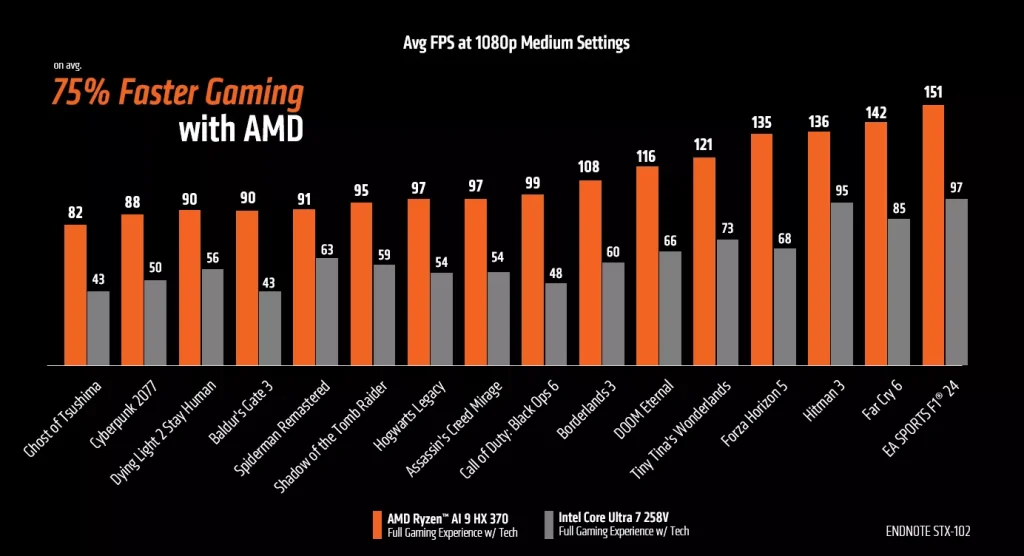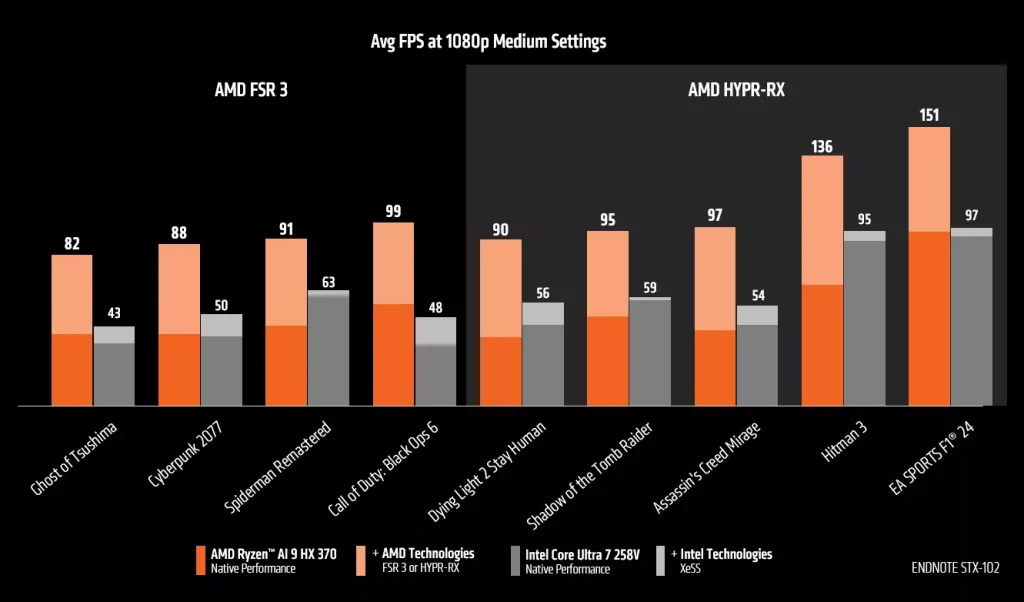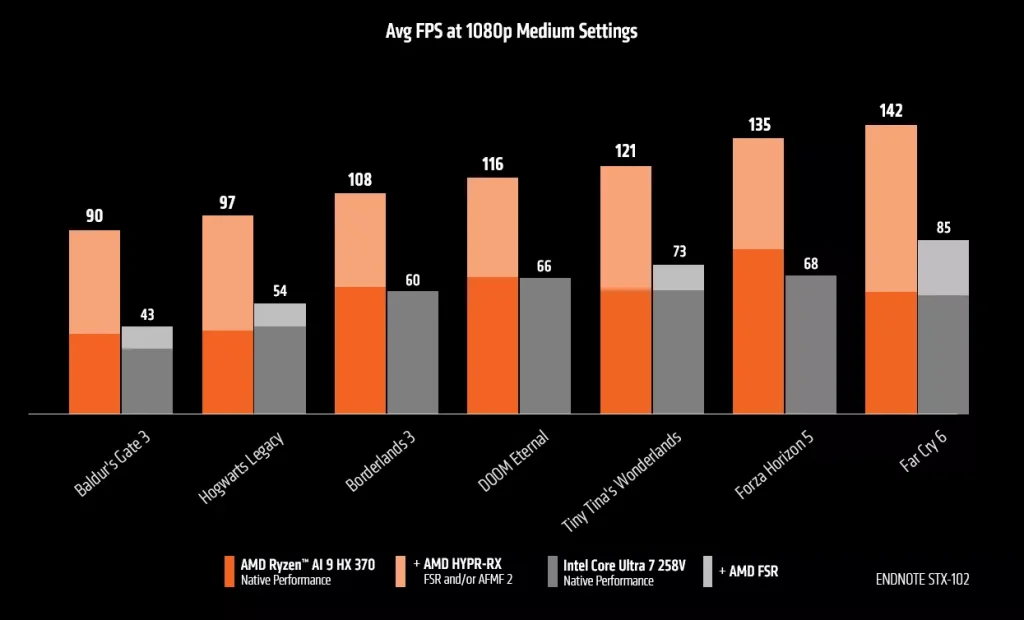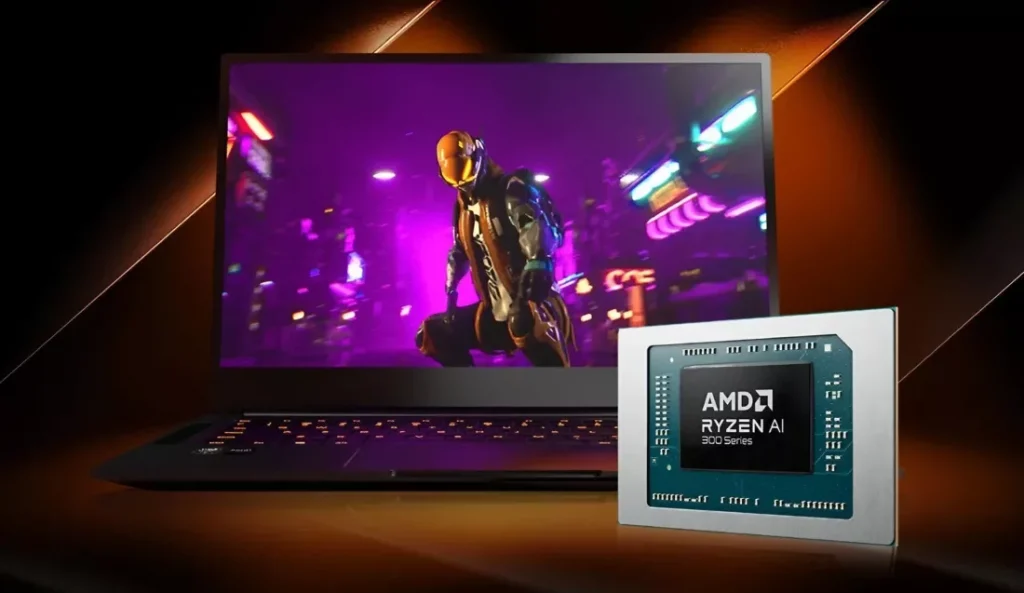AMD is making bold claims about the gaming performance of its new Ryzen AI 300 series mobile processors. The company recently released a blog post showcasing impressive performance figures, stating that its flagship Ryzen AI 9 HX 370 CPU with integrated Radeon 890M graphics is, on average, 75% faster than Intel’s Core Ultra 7 258V with Arc 140V graphics.
To support these claims, AMD presented benchmark results for over 15 popular games at 1080p medium settings, including titles like Cyberpunk 2077, Assassin’s Creed Mirage, Call of Duty: Black Ops 6, and Hogwarts Legacy. The Ryzen AI chip consistently outperformed Intel’s processor.
In the latest Call of Duty installment, the HX 370 averaged 99 fps, compared to 48 fps on the 258V – a substantial 51 fps advantage for AMD. Similar results were seen in racing games like Forza Horizon 5 and F1 24, with performance leads exceeding 50 fps.

However, AMD’s impressive results come with a caveat: they are achieved using upscaling and frame generation technologies like FSR 3, HYPR-RX, and AFMF 2. These techniques utilize intelligent upscaling, anti-lag, and motion-focused dynamic resolution scaling to boost performance.

Intel’s benchmarks use XeSS when available and FSR for titles without XeSS support. Currently, XeSS lacks frame generation capabilities, putting it at a disadvantage.
AMD also included native performance benchmarks for a more direct comparison. In these tests, the Ryzen AI 9 HX 370 and Core Ultra 7 258V traded leads in different titles, showing that the gaming performance of these latest AMD and Intel mobile chips is more evenly matched than AMD’s 75% claim suggests.

The future of mobile gaming relies on technologies like upscaling, frame generation, and dynamic resolution scaling. These technologies are essential for high-fidelity gaming on low-power hardware and ray-traced 4K PC gaming.
In this context, AMD appears to have a lead over Intel. FidelityFX Super Resolution and frame generation are supported in hundreds of games, while Intel’s XeSS is still rolling out with just over 130 supported titles so far.





